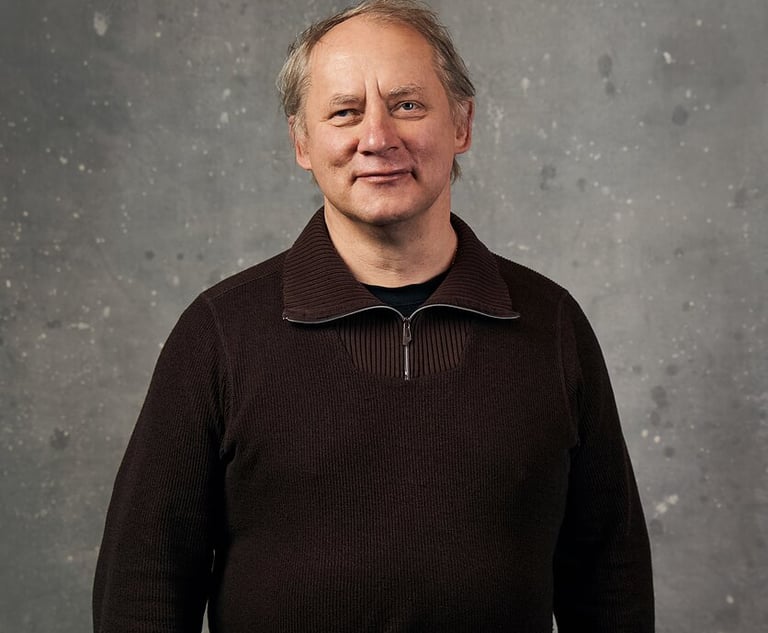Julius Sasnauskas’ apartment
Julius Sasnauskas lived in this building with his family, who instilled patriotic values in him from a very young age. Julius began participating in dissident activities from about 16-17 years old.
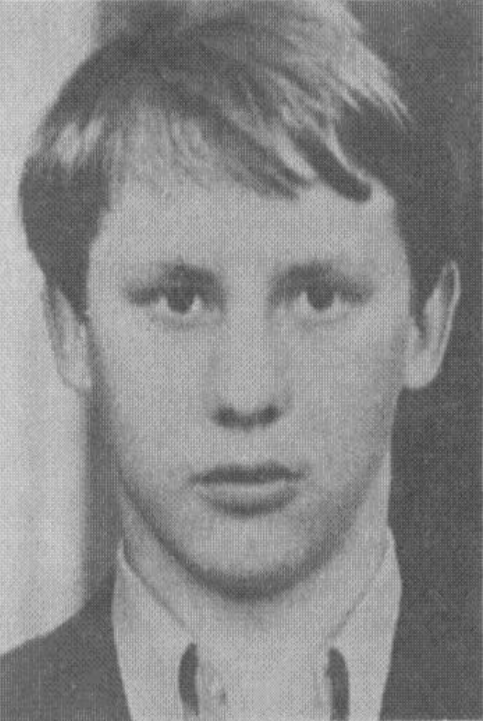

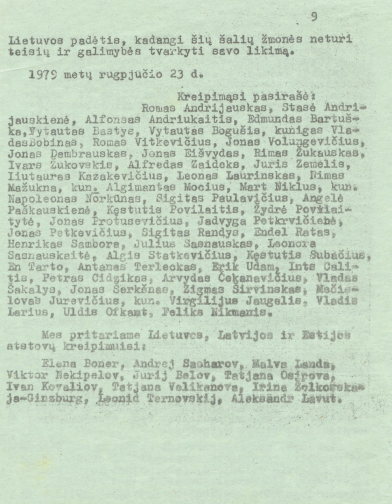

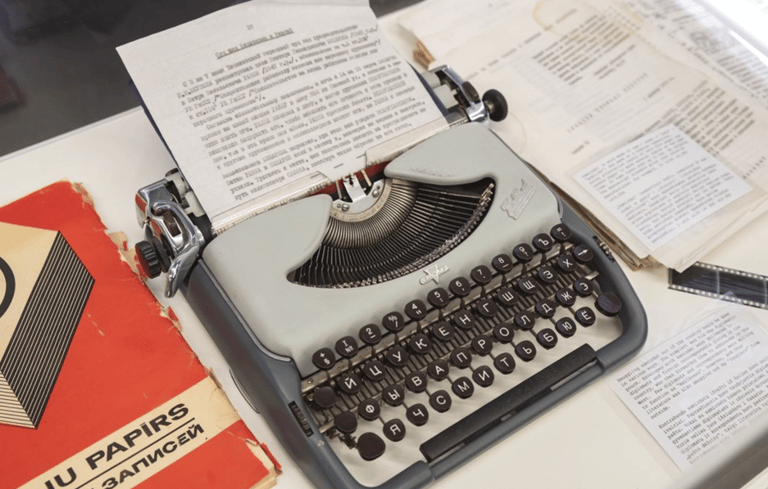

In 1979, Julius, together with 44 other people from the Baltic states, signed the “Baltic Appeal,” which was addressed to the Secretary-General of the United Nations and high-ranking officers of the Soviet Union and East and West Germany, demanding public disclosure of the Molotov-Ribbentrop Pact’s secret protocols and restoration of independence to the Baltic States. The appeal was published in the foreign press and even became the basis of a 1983 European Parliament resolution in support of its demands. To this day, Julius says “This was, perhaps, the most important piece of work we did.”
The Baltic Appeal, printed in Issue No.3 of "Vytis", 1979. From the collection of the Genocide Victims' Museum.
Then, in the late 1979, his apartment was searched again, and he was arrested. Julius was sentenced to 1.5 years in prison and 5 years of exile in Siberia.
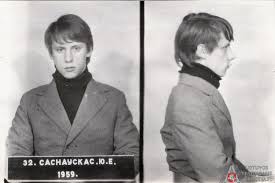

Next stop: Vilnius University Faculty of Philology, Universiteto g. 5, Vilnius 01122
He met Petkus and Antanas Terleckas and started helping out with the underground press. He would gather information about human and civil rights abuses from various sources in notebooks, which would always have “thoughts” or “diary” on the covers so they wouldn’t draw suspicion. He was given a typewriter and always found the most ridiculous places to type out these articles! Surely, you know how loud typewriters were – one could never use them at home, as neighbors could easily hear them and report you.
Once, his friend invited him to use their family apartment not far from here, but when he arrived, nobody answered the door. So, Julius snuck into the basement of his friends’ apartment building, put up a few boxes to build a desk for himself and spent the entire night typing everything out. He recalls how careless he was but admits he didn’t think too much about consequences – the press was of the highest priority.
He says that it was clear when he was being followed – he’d see mysterious stalkers in his shadow. Ironically, this would calm him down. As his colleague Antanas Terleckas used to say – it’s when the stalkers disappear that you know a storm is coming.
“You could feel safe on Mondays, as agents back after the weekend are completely hungover – you’d know they wouldn’t plan anything in that condition, they’d only start on Tuesday,” Julius remembers with a laugh. Ever since 1977, he and his home were under constant surveillance and the KGB repeatedly conducted searches there.
He came back in 1986, just in time to attend the rally at Adomas Mickevičius’ monument. After independence, Julius finally graduated from the seminary and became a priest. Currently, he’s the rector of the Bernardine Church and works at the Catholic radio station “Mažoji studija.” Let’s keep exploring, shall we? Let me know when you’re at the next stop by clicking “continue.”
